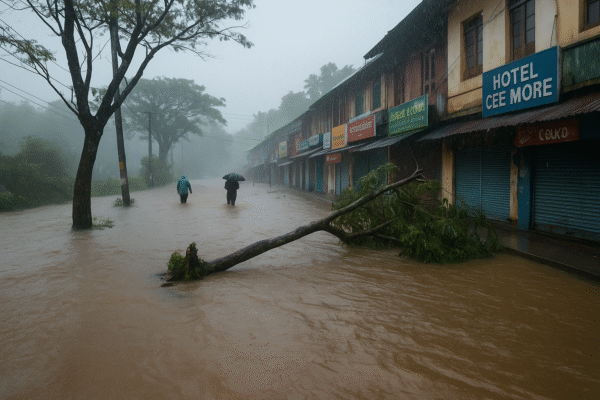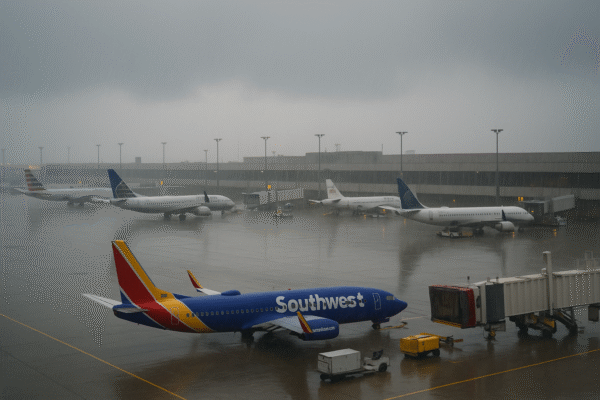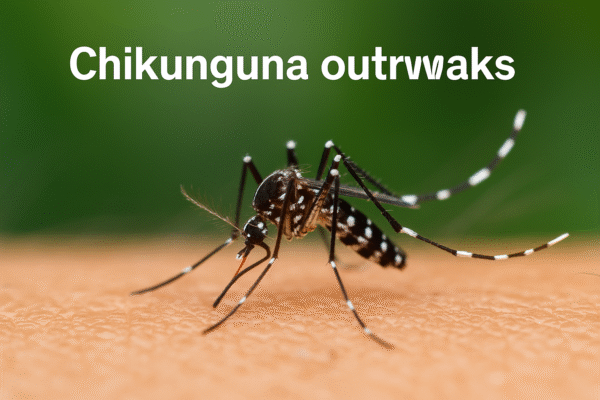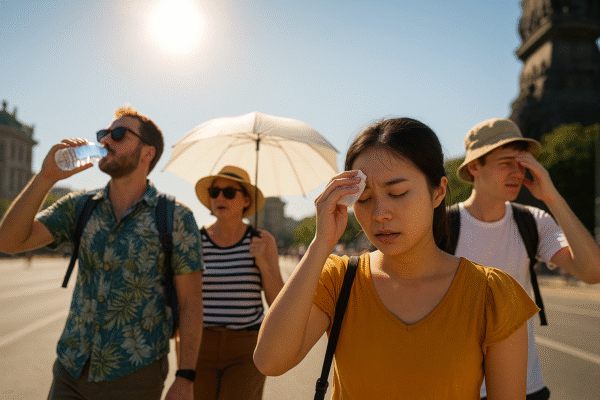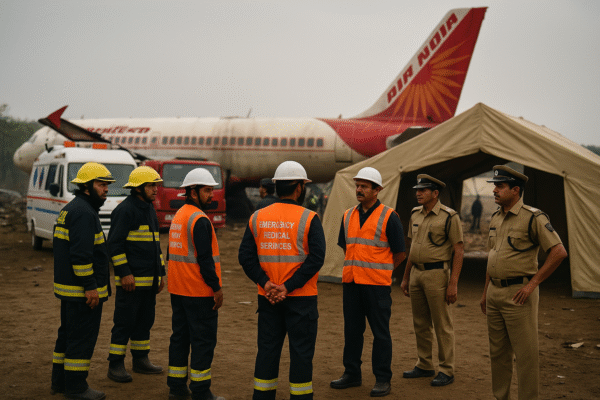In a landmark move for India’s aviation and tourism sectors, the government and Air India have announced a multifaceted relief package for the first responders and relief workers who led the recovery efforts following the AI171 crash. More than a month after one of the country’s deadliest aviation disasters, these professionals are set to receive financial assistance, comprehensive mental health services, and enduring recognition—measures designed to reinforce confidence in India’s travel industry while honoring those who acted swiftly amid chaos.
The immediate phase of the package involves interim financial grants: each certified first responder and relief worker will be eligible for ₹5 lakh to cover urgent expenses. These grants, disbursed within weeks of the crash, are intended to offset out‑of‑pocket costs—from medical bills to transportation—and will be credited against any additional compensation determined in the final review. Over 300 personnel from fire, police, medical, and emergency management units have already received this preliminary aid, reflecting the swift coordination between federal authorities, Air India, and local administrations.
Central to the initiative is the formation of the AI171 Relief and Welfare Trust, an independent body entrusted with managing long-term support for both families of victims and the workforce at the frontline of disaster response. Through this trust, next-of-kin of each fallen soldier—whether aviators, ground staff, or visiting passengers—will be granted ₹1 crore in ex‑gratia compensation. Concurrently, relief workers and first responders will have access to an expanded compensation scheme, with final disbursals calibrated to recognize the extraordinary risks they faced.
Beyond monetary relief, the trust’s mandate includes a robust mental health and wellness program. Licensed psychologists and trauma counselors will be available to all responders, offering group sessions and one-on-one therapy. This initiative acknowledges that the psychological toll of sifting through wreckage and comforting injured survivors can shadow professionals long after the physical dangers subside. By integrating mental health services into disaster recovery, India is setting a new precedent for holistic care in aviation emergencies.
Infrastructure restoration is another key pillar of the recovery framework. The crash site—located on the outskirts of a major tourism hub—damaged a student housing complex and adjacent public roads frequently used by visitors en route to heritage sites. The trust has earmarked funds to rebuild the hostel with enhanced structural safeguards and to upgrade roads with reinforced guardrails and improved signage. These upgrades serve the dual purpose of honoring safety standards and reassuring leisure and business travelers that the region’s facilities meet international norms.
For the broader travel ecosystem, the announcement has immediate implications. Tour operators and hotel chains in nearby districts report a stabilization in booking inquiries, citing the government’s proactive measures as a sign of restored reliability. Travel insurers, too, are revisiting premium structures for domestic aviation routes, factoring in the new support protocols that effectively reduce operational risks for rescue personnel—a move that could translate to more competitive insurance rates for flyers.
Aviation analysts note that Air India’s collaboration with federal agencies underscores a shifting corporate ethos: one where rapid crisis response and community engagement are as vital to brand equity as punctuality and in-flight service. By dedicating resources to those who mitigate tragedy’s impact, the carrier is positioning itself not merely as a transportation provider but as a stakeholder in public safety and welfare.
On the operational front, the Directorate General of Civil Aviation (DGCA) has initiated a joint task force with the Bureau of Civil Aviation Security (BCAS) to audit emergency protocols at all major airports. Drawing lessons from the AI171 response, the task force will issue updated guidelines on crash-site containment, first-responder mobilization, and passenger evacuation—standards that will be rolled out during a nationwide training series for airport fire and rescue units.
Local governments are also playing their part. The New Delhi municipal corporation unveiled plans to enhance disaster preparedness drills at key tourism sites, including the Qutub Minar complex and India Gate precinct. These drills, conducted quarterly, will integrate lessons from the AI171 scenario—ensuring that event organizers, guides, and security personnel can collaborate seamlessly in emergencies.
Industry insiders point to one lasting benefit: traveler confidence. In the current competitive tourism landscape, perceptions of safety drive destination choice more than ever. India’s swift, transparent, and inclusive support measures send a clear signal that public welfare underpins its travel offerings. As global outbound tourism rebounds from recent downturns, destinations that showcase resilience and empathy are poised to capture a larger market share.
Looking ahead, the AI171 Relief and Welfare Trust will publish semi‑annual progress reports, detailing disbursement metrics, mental health engagement rates, and infrastructure milestones. This level of accountability is uncommon in aviation disaster responses and reflects a broader shift toward data‑driven stewardship in the travel sphere.
Ultimately, by anchoring its relief efforts in both human compassion and structural upgrading, India is crafting a model that other nations and carriers are likely to emulate. For first responders, the tangible benefits of financial and psychological support will ease personal burdens. For travelers, the reinforced safety measures and transparent governance will restore faith in the skies—an essential element for the ongoing revitalization of India’s vibrant tourism sector.
Read more travel stories- read Global Travel Wire.




